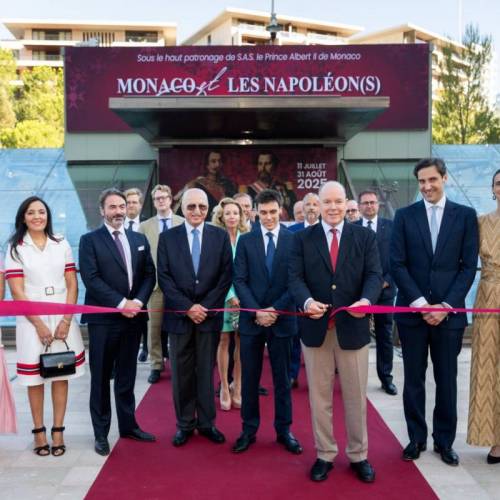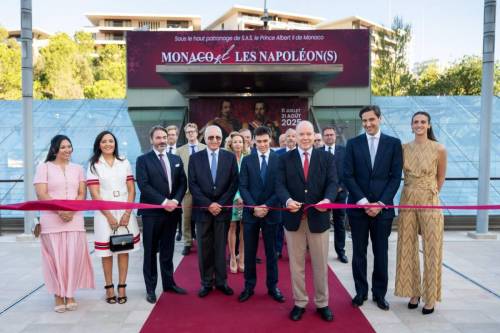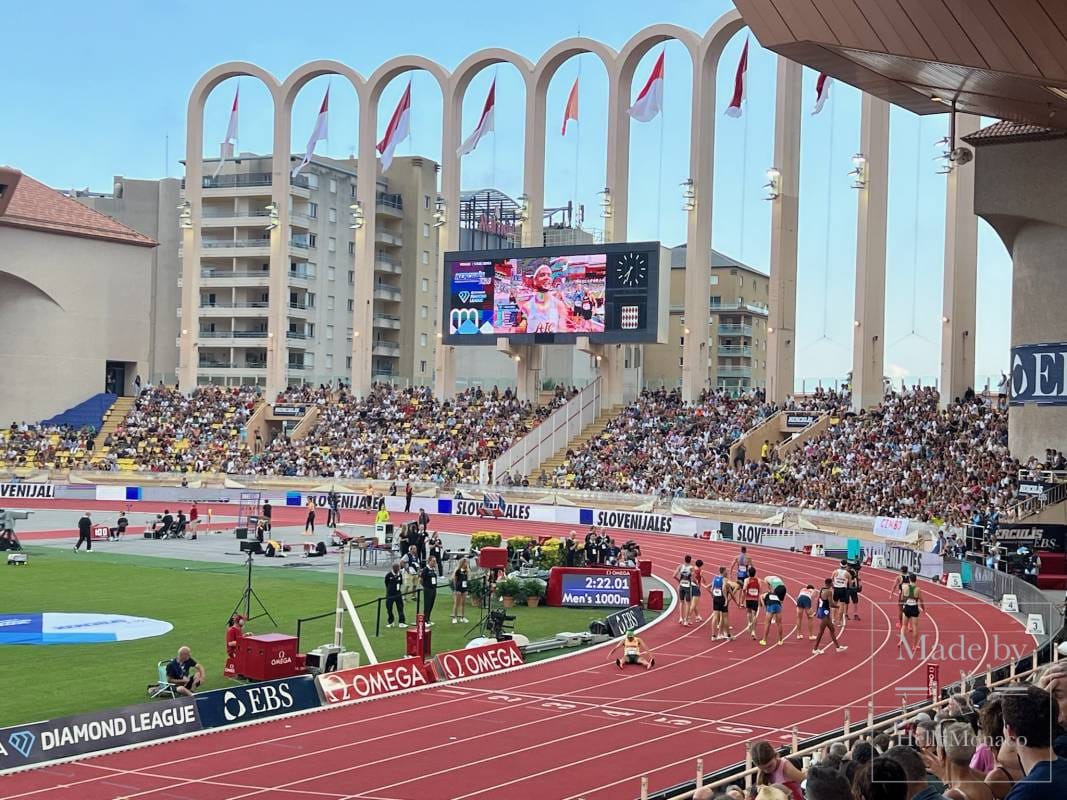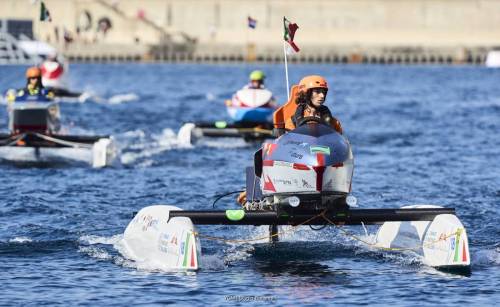This year marks a decade since Prince Albert II created his FPA2 Foundation focusing on environmental initiatives.
True to his great-grandfather, oceanographer Prince Albert I who gave Monaco its constitution in 1911, Prince Albert II said in his inauguration speech: “A collective desire to preserve our environment should be one of our country’s contributions to the international community. I wish our knowledge in this area to benefit everybody and contribute to a number of cooperation projects with other countries, including our Mediterranean neighbours”.
He has kept true to his promise and started implementing it. April 2006 was the celebration of the 100th anniversary of a scientific expedition to the North Pole led by Prince Albert I when he studied marine flora and fauna and the movement of glaciers. Albert II followed in the snowy footsteps of his great-grandfather to witness the direct impact of global warming on our planet. He is the first monarch to have reached the North pole in person: “We have seen tremendous changes taking place over these years: an imbalanced flora and fauna, traditional species prone to mutations and a high level of environmental pollution.”
The experience prompted the sovereign to establish the Foundation of Prince Albert II (FPA2) on 30the June, 2006. Not only does it represent his personal contribution to safeguarding our ecosystem (he is acting President of the Foundation), it is also a force to unite people in their quest to improve the planet’s pollution.
Now that the Foundation has celebrated its first decade, the Prince said at a press conference held at the Yacht Club of Monaco: “I am very pleased that the Foundation is pursuing its incredibly fast development. Thanks to its work, a number of projects and the help of other people, we were able to move forward in addressing environmental problems jointly and efficiently. But much more remains to be done and we can do nothing for our planet if we don’t join our efforts.”
One of the reporters in the audience was Bertrand Picard. He recently changed history by flying over the Atlantic in an airplane powered only by solar energy. He spent a total of 71 hours and 8 minutes in the air, without a drop of fuel, before landing in Seville, Spain on 23rd June. The idea of launching a solar energy airplane in pursuit of clean technologies was prompted by Picard (its initiator, chairman and co-founder) and by Andre Borshberg in Switzerland 12 years ago. However, Prince Albert gave his full support to this project, placing the mission Control Centre on Monegasque territory.
The Prince is also assisting Pope Francis who mainly focussed on the issue of global warming in his circular Laudato Si in 2015. Albert supported the head of the Catholic Church in his epilogue to the document: “I am sure that the publication and distribution of this circular will help us to attract more attention and, therefore, work together to solve this global problem of our century. The ecological crisis is a call to a deep inner transformation.”
Since its inception, the Prince Albert Foundation helped to carry out more than 380 projects and received thousands of requests for financial assistance and partnership. “Some of the projects we reject, because they do not fit in our strategy or need urgent action,” explained the 58-year-old monarch, “but I think it shows that we are on the right track and moving in the right direction.”
Another name associated with Monaco projects on environmental protection and sustainable development is Bernard Fautrier, the CEO and vice president of the Prince Albert II Foundation.
It is no coincidence that Mr. Fautrier was appointed a loyal assistant to Albert II in pursuing the Foundation’s mission, establishing business contacts, raising public awareness and supporting projects through grants, highlighting “the impact of human activities on the natural environment”. Mr. Fautrier has had a rich experience in the field of environmentalism and its promotion in the government long before it became fashionable to be an environmentalist.
“I was at a press conference with Prince Albert a few months after he came to the throne, when he announced the creation of the Foundation,” confides Bernard Fautrier. “After the journalists left, he told me: ‘Well, now I have to find someone who will take up this project. What about you?’.”
Prince Albert Foundation gives priority to three regions: the Mediterranean Basin, Polar regions, and the least developed countries according to UN standards, namely those on the African continent.
Mr. Fautrier acknowledged that much has changed in the last 10 years since the Foundation was established: “I have studied the problem of environmental protection for 35 years. In the beginning no one really knew what it meant. Perhaps only 5% of the population thought that the problem actually existed. And there was no way that the companies would adhere to an environmental development plan. Today people witness first-hand the problems of ecology and environmental pollution. We do not have to put so much effort in explaining the causes and effects. Governments today are better informed about the indisputable scientific facts and evidence, such as the decrease in the number of existing shark species by 90%, almost a complete extinction of red tuna or the melting of icebergs and a continuing global warming. They are now willing to take the necessary steps for the future of our planet. The public is increasingly aware of its effect on our everyday lives. We were witnessing a near extinction of certain species in the Mediterranean due to the depletion of fish stock and lack of control measures. Governments responded to it by introducing fishing quotas and alerting fishermen on how to exercise their trade sparingly to preserve it in the future. As a result, a few years later the number of species stabilised.”
Educating consumers and professionals was equally necessary to protect the endangered marine species. In October 2013 the Foundation launched the “Mr Goodfish” campaign that consisted of a simple observation: certain fish species are depleted, while others, though unknown, are abundant and delicious. The purpose of the project was to provide consumers with a list of alternative fish for their table. Monaco restaurants Le Vistamar (one Michelin star) and Les Thermes Marin Monte-Carlo both supported this movement of responsible seafood consumption.
Since 2006, the number of the Foundation’s partners has been increasing steadily – from the globally recognised World Wildlife Fund to the local Mercantour National Park, located about 40 kilometres away from Monaco. The same goes for their list of partner institutions, including National Geographic, Climate Group and Tiffany and Co, which invested a total of 35 million euros in the Foundation’s projects.
The Prince Albert Foundation also grants three annual awards in the following areas: biodiversity, climate change and protection of water resources.
South Africa based Dezigen Naidoo, CEO of the Water Research Commission and holder of the Foundation’s award for water resources protection, stated this year: “One of the Foundation’s strong points is that it is not a corporate structure, dreaming of profit under cover of environmental protection. This is a truly impartial voice acting on behalf of climate change and environmental struggle, and that is why it is so highly respected.”
The Prince also awards scientists and researchers in ecology within the framework of Clean Equity Monaco, the world’s leading cleantech conference, which takes place every March. The event was conceived by Prince Albert together with Mungo Park in 2007.
It should be mentioned that the ruling Prince Albert II of Monaco has himself won a number of ecological awards. A few weeks after taking part in the historic COP21 in Paris in November last year, Prince Albert and Bernard Fautrier went to New York. The sovereign was given the Global Environmental Award 2015 for his contribution to flora and fauna biodiversity and climate change research. The award was presented by the UN Secretary General Ban Ki-Moon.
President Bill Clinton received the same award in 2006, the year when the Foundation was set up. Earlier in 2015, Prince Albert was awarded the “Oscar of the oceans”, an honourary award for outstanding achievement in the field of national guardianship over the oceans.
The Prince is therefore absolutely true to his promise of promoting the respect for the environment. However, Monaco cannot solve the global problem of climate change on its own. One state can only make its small contribution and reduce its harmful emissions by 30 percent by 2030. But according to Bernard Fautrier, “this will not change much” compared to Russia, for example. A closing of just one plant in that country can dramatically reduce the total harmful emissions by 20-40 percent.
“Monaco has three main directions to work on in order to reduce pollution,” – explains the Foundation’s CEO. “The first, and not the most difficult, is electric heating and air-conditioning in the buildings. To reduce pollution we can use alternative sources of heating, the energy of water or the sun. The second, more complex, is waste management. We need to reduce our waste. Instead of burning it, we also need to find another way of recycling it to reduce emissions. The last and the most difficult issue is transport. It is very, very difficult. “
Monaco is the second smallest and one of the most densely populated countries in the world. During the working week the number of its population increases from 32,000 to 55,000 people. Monaco public transport, CAM, operates buses that meet most advanced environmental standards. The company says that the use of transport has increased by 20 percent since 2009 due to the improved circulation and availability scheme. The electric Mobee (electric car drivers can park for free) and electric bike program were also introduced.
However, there is one significant negative point that seems to contradict the environmental agenda of the Principality. The Grand Prix of Formula 1. “People are absolutely right believing that Formula 1 is not a good symbol for Monaco,” recognises Bernard Fautrier. “However, this event is very financially beneficial for Monaco.”
Mr. Fautrier calculated that if you add up all the royalties paid to the Principality during the Grand Prix, it is equal to the state budget. “However, we have to be reasonable. That’s why Monaco initiated the very first electric race ePrix in 2015. Formula E sends a message that today we have an alternative that can be just as exciting and contributes to the protection of the environment. “
The Foundation and ONE DROP (a non-profit organisation created in 2007 by Cirque du Soleil), both collaborated with the all-electric FIA Formula E. The Prince’s photos in Paris during the electric ePrix race on 23rd April are not just staged for “People” magazine. He genuinely tries his utmost to contribute to a world without the carbon emissions, fires and accidents that are quite typical of Formula 1 races.
An “Eco Warrior”, the “Green Prince” personally takes action towards sustainable development and a better planet for our children.
You cannot help but agree with Bernard Fautrier who once said of Prince Albert II and his Foundation: “I am sure that thanks to his efforts, the future is bright…and the environment clean.”








